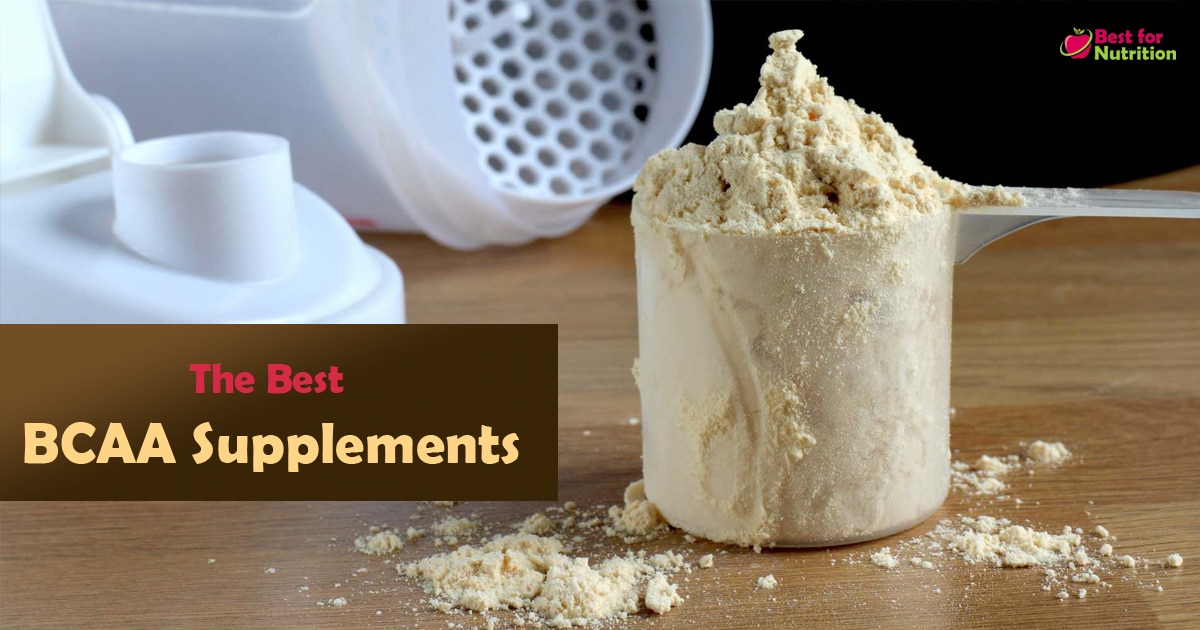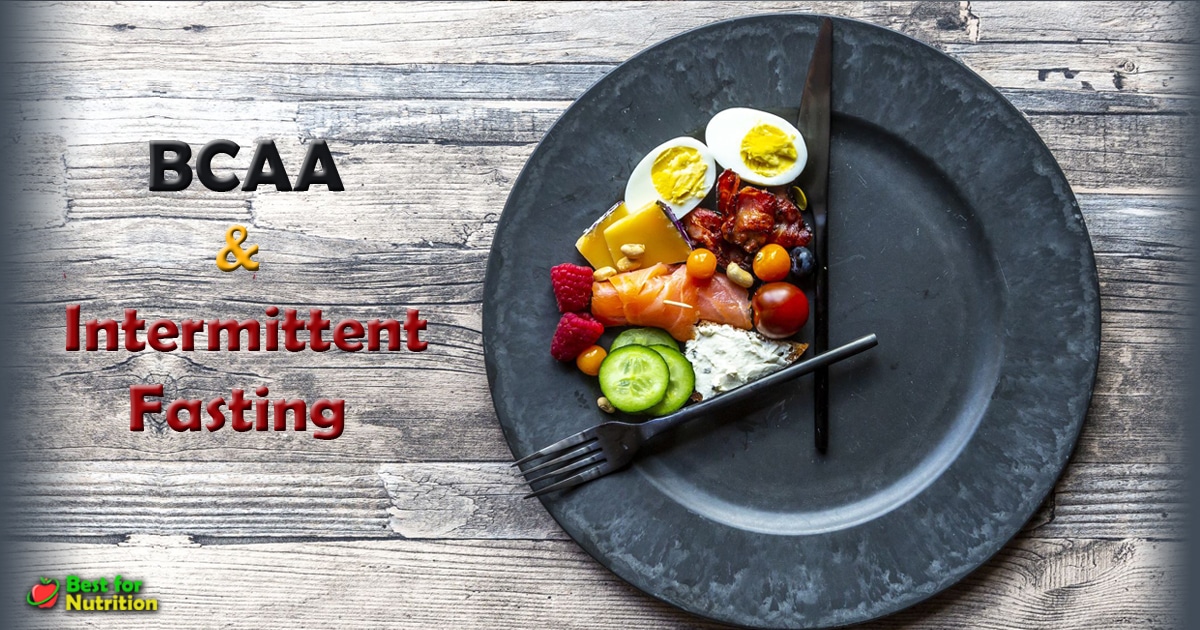BCAA supplements rank high among the most sought after supplements in the fitness industry. Its popularity rivals that of the top competitor in the field – whey protein!
In fact, there are many bodybuilders who rely on BCAAs rather than whey protein, to help enhance their workout performance, build bigger, stronger muscles and speed up post-workout recovery.
But are BCAAs really better than whey or any of the other supplements out there – such as creatine, EAAs, pre-workouts, glutamine, etc?
Maybe combining BCAAs with some of these may boost your muscle-building efforts. If so which ones?
From the timing and dosages to the mechanism and benefits of BCAAs, here is a guide to everything you need to know about using BCAA.
- What are BCAAs?
- How Do BCAAs Work?
- BCAA Benefits
- BCAA Side Effects
- Where to Find BCAAs
- When to Take BCAAs
- BCAA Dosage
- BCAAs for Women
- BCAAs vs Creatine
- BCAAs vs EAAs
- BCAAs vs Whey Protein
- BCAAs and Glutamine
- BCAAs vs Pre-Workout Supplements
- BCAAs for Runners
- BCAAs for Weight Loss
- BCAAs and Keto Diet
- BCAA Pros and Cons
- BCAA Pills vs Powder: Which is Better?
- FAQs

What are BCAAs?
The branched-chain amino acids (BCAAs) are made up of the three essential amino acids – leucine, isoleucine, and valine (1).
Amino acids are the building blocks of protein in our body. There are about 20 different types of amino acids in our body. While most of these amino acids can be synthesized by our body, there are nine amino acids that can be obtained only from our diet. These are called the essential amino acids (2).
BCAAs are commonly found in high protein foods such as meat, eggs, and dairy (3). BCAA supplements are very popular among fitness enthusiasts and are available in the form of powders and capsules.
How Do BCAAs Work?
BCAAs form a major part of our body’s amino acid pool. They make up 35 to 40 percent of all essential amino acids in our body and about 14 to 18 percent of that in the muscle cells (4).
BCAAs have several functions in our body:
- These branched-chain amino acids are used as building blocks of protein in the body, including the synthesis of new muscle cells (5). Among the BCAAs, leucine may have the strongest effect on building muscle proteins (6).
- On the other hand, isoleucine and valine are more beneficial in energy production and for regulating blood glucose levels (7).
- Unlike other amino acids that are metabolized in the liver, BCAAs are broken down in the muscles. This is believed to offer an energy boost during your workout (8).
- BCAAs regulate blood glucose levels by stimulating cells to absorb glucose in the blood, thus preserving your muscle and liver glucose stores (9, 10).
- BCAAs may reduce fatigue during exercise by reducing the production of serotonin hormone (11).
Summary: BCAAs play many roles in our body and are involved in energy production, building muscles, regulating blood glucose, and the production of hormones such as serotonin.
BCAA Benefits
Boosts Muscle Growth
BCAA supplements are primarily used by bodybuilders for increasing their muscle growth. Studies have observed that those who consume BCAA supplements after resistance exercises had increased protein muscle synthesis in comparison to those who did not (12).
If you are looking to build more muscle, you should also keep in mind that the combination of whey with BCAAs has been found to increase muscle protein synthesis much more than BCAAs alone (13).
Even though BCAAs do boost muscle building, you also need to add in the other essential amino acids for maximizing your muscle protein synthesis. All the essential amino acids including the BCAAs can be found in whey protein.
Decreases Muscle Soreness
We all tend to feel quite sore for a day or two after our workouts. This is especially true when we try a new exercise routine. Supplementing with BCAAs before your workout can reduce such post-workout muscle soreness.
These body aches, that tend to develop 12 to 24 hours after your workout, are called delayed onset muscle soreness (DOMS) (14). Tiny tears in the muscles during the exercise are believed to cause DOMS, though the exact cause is yet to be identified by researchers (15).
As muscle breaks down, creatine kinase from the muscles gets released into the bloodstream. BCAA supplementation reduces the levels of creatine kinase which is a clear indicator of less muscle damage (16). In other words, BCAAs have been found to reduce the severity and duration of DOMS as they decrease muscle damage during exercise (17).
Decreases Exercise-Induced Fatigue
As we workout, we start getting tired, and eventually exhaustion sets in at some point. Our nutrition, fitness level, the intensity of the exercises, and the duration of our workout are some of the factors that determine how quickly we get tired (18).
On the other hand, exercise also makes us feel good due to the happy hormone ‘serotonin’ getting released during the workout. As our muscles use up BCAAs, this triggers the conversion of the amino acid tryptophan to serotonin in our brains (19).
But as our serotonin levels increase, it also contributes to our sense of fatigue during the workout (20). BCAA supplementation reduces fatigue by inhibiting tryptophan transport into the brain and lowering serotonin synthesis (21).
Prevent Muscle Wasting
Our muscles are constantly being renewed – they are broken down and built again. When we exercise, more muscles get broken down. When the rate of muscle breakdown exceeds the rate of muscle getting built (muscle synthesis), muscle wastage occurs (22).
As mentioned earlier, BCAA supplements reduce the rate of muscle protein breakdown. This in turn decreases muscle wastage (23).
BCAA supplementation benefits not only bodybuilders but also the elderly population whose muscle breakdown naturally increases with age (24). It also helps improve the quality of life of those with muscle wasting diseases such as cancer (25).
Reduces Risk of Liver Cancer
In people with liver cirrhosis, the liver cannot function properly. About half of those suffering from this disease tend to develop hepatic encephalopathy, a condition in which the liver is unable to remove toxins from the blood (26).
BCAA supplementation helps improve the symptoms of hepatic encephalopathy (27, 28).
Liver cirrhosis also increases the risk of hepatocellular carcinoma, a type of liver cancer (29). Researchers have noted that BCAA supplements may reduce the cancer risk in those with liver cirrhosis (30, 31).
Summary: BCAAs not only help build muscle, but they also reduce muscle soreness post-workout. They lower the rate of protein breakdown and help prevent muscle damage. BCAA supplementation improves endurance by decreasing exercise-induced fatigue.
BCAA Side Effects
BCAAs are generally safe for consumption and do not cause any side effects in healthy individuals. You can take BCAAs daily to build up their effectiveness (32).
But it’s important to stick to the recommended BCAA dosages, based on your age, diet, fitness levels, and so on (33).
- Overdosing on BCAAs may cause nausea, headache, fatigue, and a loss of coordination.
- BCAAs tend to affect blood sugar levels, and in large amounts, they increase insulin resistance (the precursor to type-2 diabetes) (34, 35).
- Considering its influence on blood glucose, its best to avoid BCAA supplements before or after surgery (36, 37).
- BCAAs were considered beneficial for treating Lou Gehrig’s disease (ALS), but now they have been declared problematic for those with this disease (38).
- People with kidney diseases, heart diseases, maple syrup urine disease (branched-chain keto-aciduria), and those who drink excessive amounts of alcohol are advised not to consume BCAA supplements. Please consult your doctor before taking any such supplements (39).
Summary: BCAA supplements are generally safe for consumption and do not cause any side effects. Those with medical conditions such as Lou Gehrig’s disease, maple syrup urine disease, heart diseases, etc. should avoid BCAA supplements.
Where to Find BCAAs
Our bodies cannot produce BCAAs. These essential amino acids have to be sourced from our diet. But that generally is not a problem at all as BCAAs are easily available in high protein foods such as poultry, eggs, meat, fish, yogurt, chickpeas, quinoa, nuts, brown rice, etc.
The best food sources of BCAAs include the following: (40).
- 3.5 oz of Beef: 6.8 grams
- 3.5 oz of Salmon: 4.9 grams
- 3.5 oz of Chicken Breast: 5.8 grams
- 1 cup of Lentils: 2.5 to 3 grams
- 1 cup of Milk: 2 grams
- 3 oz of Tofu: 0.9 to 2.3 grams
- 1 oz of Cheese: 1.4 grams
- 1 large Egg: 1.2 to 1.5 grams
- 1 cup of Quinoa: 1 gram.
BCAA deficiency is rare, but those following restrictive diets may not be getting adequate protein, and in turn, the necessary BCAAs from their food sources. BCAA supplementation is helpful in such cases.
BCAAs are popular among bodybuilders and fitness enthusiasts due to their ability to increase muscle building, and endurance while reducing exercise-induced fatigue.
Summary: BCAAs are easily available from high protein food sources such as meat, fish, poultry, eggs, nuts, lentil, yogurt, etc. BCAA supplements are easily available in the form of powder and capsules.
When to Take BCAAs
When to take BCAAs for maximum effectiveness is a highly debated question.
How much BCAAs and when to take them primarily depends on many factors including your fitness goals, dietary intake of protein, the exercise regimen you follow as well as your current fitness levels or medical condition.
Considering that BCAAs reduce muscle damage during workouts and reduces exercise-induced fatigue, taking it before your workout is a good option (41). This is especially beneficial if you work out in a fasted state, in the morning. Taking BCAAs on an empty stomach speeds up their absorption (42).
BCAAs boost your stamina, so you can consider taking them during your workout if you are doing endurance exercises or working out for long durations (43).
The best time to take BCAA supplements is post-workout as they promote muscle synthesis (44). BCAAs are also known for reducing muscle soreness that results from a workout and helps you recover faster from your workout.
You can take BCAA supplements in the form of capsules or mix the powder supplement into your workout milkshakes. These are convenient to carry around, easy to take any time, and anywhere as well.
Summary: BCAAs can be taken pre-workout, during the workout or post-workout, depending on your fitness goals. The best time to take BCAA supplements is said to be after a workout as this boosts muscle synthesis and reduces muscle soreness.
BCAA Dosage Instructions
So how much BCAAs should you take in a day?
Just like the timing of your BCAA supplements, your BCAA dosage also depends on your personal goals and needs.
A daily minimum of 34 mg of BCAAs per kg (15 mg/lb) of body weight used to be recommended by the World Health Organization (45).
But recent studies set this value as high as 144 mg of BCAAs per kg (65 mg/lb) of body weight. Women should consume at least 9 grams of BCAAs daily while men need a minimum of 12 grams (46).
BCAA supplements are required only if your diet does not supply adequate amounts of these amino acids.
The nutritional requirements of bodybuilders and athletes tend to be higher, so BCAA supplementation is usually beneficial for them. Studies that have noted BCAA benefits in such individuals used doses of 10 to 20 grams of BCAAs daily (47).
Consulting your doctor or a nutritionist will help to decide on the right BCAA dose for your specific needs and goals.
Summary: Our daily BCAA requirements range from 9 to 12 grams daily and this can be easily met with a healthy, balanced diet. Athletes and bodybuilders will need more and may benefit from supplementing with an additional 10 to 20 grams of BCAAs per day.
BCAAs for Women
BCAAs do not have any gender-specific characteristics. This means BCAAs are equally effective in both men and women.
As a part of their fitness regime, BCAAs help women lose excess body fat and build lean muscle mass. As mentioned earlier, a daily intake of about 9 grams of BCAAs is sufficient for most women.
It’s perfectly safe for women to take BCAAs without worries about bulking up or any other side effects. It’s best that pregnant or breastfeeding women avoid such supplements as no studies have been undertaken to confirm the safety of BCAAs in such circumstances (48).
Summary: BCAA supplementation can help women lose unwanted body fat and build lean muscle mass, without the worry of bulking up. About 9 grams of BCAAs per day is adequate for most women.
BCAAs vs Creatine
Creatine is a very popular supplement among bodybuilders. Mostly found in our muscle cells, creatine supplies the energy needed for intense exercise sessions or heavy lifting (49).
Several studies have proven that creatine increases exercise performance, muscle mass, and strength (50, 51). Creatine supplements boost energy and reduce muscle breakdown as well as the risk of injury during workouts (52, 53).
Even though creatine offers all these amazing benefits, the simple fact is that creatine supplementation is often not necessary for most people since it is synthesized in our body using the nonessential amino acids glycine, arginine, and methionine (54).
BCAAs, on the other hand, is made of the essential amino acids leucine, isoleucine, and valine. Supplementing with BCAAs is vital if they are not adequately obtained from your regular diet.
Bodybuilders can consider taking either or both, depending on their fitness requirements. BCAA supplements speed up muscle recovery and protein synthesis while reducing muscle soreness after workouts.
The combination of BCAAs and creatine will help power your workout during high-intensity workouts, boosting both strength and training volume.
Summary: While creatine offers rapid energy along with increased strength and stamina for your high-intensity workouts, BCAAs speed up muscle recovery and reduce muscle soreness after the workouts. A combination of both supplements is ideal for serious bodybuilders.
BCAAs vs EAAs
Essential Amino Acids (EAAs) are a recent entry into the bodybuilding supplement’s market and they are threatening to edge out BCAAs from its position among the top contenders.
EAAs are supplements that contain all the 9 essential amino acids that cannot be synthesized in our body.
While BCAAs contain 3 of these vital nutrients, EAAs also have the same along with 6 more, making them an obviously better choice. But are EAAs actually the better choice? Well, it’s not that simple an answer.
Why BCAAs are More Popular than EAAs
There is a good reason why the BCAAs ruled the roost all these years. Although mentioned before, here is a quick sum-up of what BCAAs offer to bodybuilders:
- Of all the essential amino acids, leucine has the most powerful impact on muscle building while the other two branched-chain amino acids isoleucine and valine play important roles in blood glucose regulation and energy production (55, 56).
- BCAAs are a good choice for a pre-workout supplement or even during your workout as they offer a faster energy boost compared to other amino acids. BCAAs are metabolized directly in the muscles whereas the other amino acids are broken down in the liver (57).
- BCAAs also encourage the use of glucose from the blood rather than using up your muscle glycogen stores. This improves your endurance as you are also getting energy from the BCAA breakdown in the muscles (58, 59).
- The fatigue you normally experience during the workout is reduced as BCAA lowers serotonin production. Although serotonin is a feel-good hormone, it also increases your feelings of fatigue and exhaustion during workouts. BCAAs inhibit the uptake of tryptophan into the brain thus reducing its conversion to serotonin (60).
All of the above makes it evident that BCAAs are no doubt a wonderful supplement for a fitness enthusiast or a bodybuilder. BCAA supplements usually contain 2:1:1 ratio of leucine to isoleucine and valine or even 4:1:1 or as high as 8:1:1.
Why EAAs are a Good Choice
A single serving of a BCAA supplement normally contains about 3000 to 3500 mg of leucine while the amount of leucine you get from an EAA supplement tends to be much lesser.
Many of these essential amino acids are vital for muscle synthesis, but the BCAAs are the most important (61). At the same time, BCAAs are not enough by themselves.
On the other hand, if you take a closer look at the EAA supplements, they are primarily BCAA supplements with much smaller amounts of the other essential amino acids, making them a good choice as well.
EAAs vs BCAAs: Which Should I Choose?
So are EAAs better than BCAAs? Well, they are just premium versions of BCAAs. They are recommended if your diet is low in high-quality proteins.
But if your dietary intake is enough and you are looking for a bodybuilding booster, then a BCAA supplement is what you need.
Summary: EAAs contain all nine essential amino acids including the BCAAs. They are ideal if your diet is low in quality protein sources. In combination with a healthy diet, BCAAs may be a better choice for boosting your muscle-building efforts.
BCAAs vs Whey Protein
Even though BCAAs rank high among the most popular bodybuilding supplements, the undisputed king of this world is the protein powder, especially whey protein powder. Everyone with any inkling of the fitness world knows about protein powder, but BCAAs are still a mystery to most, even if they have heard the term.
But if you are serious about your fitness or bodybuilding goals, then you may be wondering whether you need to switch to BCAA supplements or continue with just a protein powder.
Why Whey Protein is Best
Whey protein, BCAAs, EAAs all fall under the same category of proteins, but they contain different combinations of amino acids.
While BCAAs contain the essential amino acids leucine, isoleucine, and valine, EAAs have all the nine essential amino acids (62).
Whey protein, on the other hand, contains all the amino acids required by our body – both essential and non-essential (63).
Whey is high in readily bioavailable protein and is the richest natural source of BCAAs (64).
Another advantage whey supplements have over BCAA supplements is that they tend to be cheaper. Whey supplements cost about $0.4 to $1.2/ounce while BCAA supplements usually range from 2 to 4 dollars per ounce.
Why Choose BCAAs over Whey Protein?
So why would you want to buy a supplement that’s 3 to 4 times costlier? For bodybuilders, BCAAs are especially useful during a cutting stage. BCAAs have much lower calorie content than whey.
When training in a fasted state, they offer an energy boost and help reduce premature fatigue (65).
Those attempting to maintain a caloric deficit for weight loss should also consider adding BCAAs to their fitness regimen as this helps prevent muscle wastage. BCAAs are also a great alternative if you are allergic to whey or you simply don’t like it.
Combining BCAAs with Whey Protein
If the cost is not an issue, then a combination of BCAAs and whey supplements is the best choice as they complement each other.
Enjoy the best of both worlds by including BCAAs with your pre-workout shake and enjoy your whey protein after your workout.
Summary: In most cases, whey protein is a better choice than BCAAs. It is a complete protein with all essential amino acids and is the richest natural source of BCAAs. But BCAAs are a good choice for working out in a fasted state or when you want to maintain muscle mass while losing weight.
BCAAs and Glutamine
Just like the BCAAs, glutamine is also an amino acid. Mostly found in the muscles, this non-essential amino acid is produced naturally in the body.
Another interesting fact is that glutamine is the most abundant amino acid in the human body (66).
Glutamine and BCAA both boost post-workout recovery.
Muscle Building Benefits of Glutamine
Even though it offers many benefits to support your workouts, glutamine also has many other important roles in the human body. Taken pre-workout, glutamine prevents muscles from entering a catabolic state thus helping preserve muscle during the workout (67).
Glutamine also boosts levels of human growth hormone (HGH) which is required for multiple functions including muscle building. It helps balance nitrogen levels and maintains an anabolic state.
Supplementing with glutamine replenishes glutamine levels in your body, maintaining cell hydration, and boosting muscle recovery (68).
5-gram doses of glutamine can be taken two to three times during the day. You can have the first dose in the morning and a second dose after your workout. The third dose can be taken late in the evening, before bedtime.
Can BCAA and Glutamine Be Taken Together?
Serious bodybuilders, who regularly perform intense workouts, can benefit from a combination of BCAA and glutamine to reduce muscle breakdown and speed up muscle recovery (69).
BCAA vs Glutamine: Which One is Better?
If you had to choose between BCAA and glutamine, then a BCAA supplement would be a better choice as glutamine is a non-essential amino acid that can be easily obtained from your diet (70).
BCAAs are essential amino acids that have to be included in your diet and more importantly, the body can synthesize glutamine from the BCAA amino acid leucine if needed.
Summary: Glutamine is a non-essential amino acid that can be obtained from your diet. Serious bodybuilders can consider a combination of BCAA and glutamine to boost their muscle-building efforts.
BCAAs vs Pre-Workout Supplements
Another supplement battle that rages is between the BCAAs and the pre-workout supplements. The questions again rise up – which is better or should you take them both?
What are Pre-Workout Supplements?
Although the formula varies from brand to brand, pre-workouts generally contain a combination of ingredients such as carbohydrates, protein, B-vitamins, antioxidants, etc (71).
While some pre-workout supplements contain stimulants such as caffeine (72). Others may be carb-free or even calorie-free. Pre-workout supplements are meant to boost your energy levels, focus, and ultimately your workout performance.
BCAAs vs Pre Workouts
The interesting factor when it comes to comparing BCAAs with pre-workouts is that high-quality pre-workouts will definitely contain BCAAs as these amino acids are among the most important nutrients for boosting muscle growth.
The advantage pre-workouts have over BCAA-only supplements is the presence of stimulants like caffeine which not only boost motivation and focus but also offer an energy boost.
Other ingredients in pre-workouts, such as vitamins improve moods and endurance, while additional amino acids such as beta-alanine boost carnosine production. Carnosine improves muscle endurance during high-intensity workouts (73).
If you are wondering which one is the winner, the answer again depends on your fitness goals. If your focus is on muscle building, then go for the BCAAs as higher doses of BCAAs will do you more good than a general pre-workout supplement.
But if you feel your workout performance lacks focus and motivation, try taking a pre-workout supplement about 30 minutes before your exercise session.
Can BCAA be Used as a Pre-Workout Supplement?
The answer is Yes! BCAA when taken as a pre-workout supplement boosts your stamina, reduces muscle damage, and exercise-induced fatigue, thus improving your workout performance.
Since BCAA is low in calories, it’s the ideal pre-workout supplement for exercising in a fasted state.
Can You Take Pre-Workouts and BCAA Together?
For a maximum performance boost, you can consider taking both BCAA and pre-workout supplements. Although they have some common properties, they work in different ways to enhance your workout.
Rather than mix them all in a single workout shake, try taking the pre-workout before your exercise session and the BCAA after the session. This offers you the energy and focus for your workouts as well as the nutrients needed to speed up your muscle recovery and increase muscle growth.
Summary: Most pre-workout supplements contain BCAAs as these amino acids are vital for reducing muscle breakdown and boosting muscle growth. Additional ingredients such as vitamins, antioxidants, and caffeine improve focus mood and motivation during a workout.
BCAAs for Runners
Whether you are a sprinter or a marathon runner, BCAA supplements can make a significant difference in your performance.
How BCAA Improves Running Performance
BCAA works by increasing stamina and delaying the sense of exhaustion that occurs during long-distance runs (74).
Researchers have observed that the real limiting factor that inhibits human performance is our mind, not our muscles. We tend to slow down when our brain signals to our muscles that they are tired, even when we are physically capable of continuing.
The mental fatigue that creeps up on runners is often stronger than their physical fatigue. BCAA supplementation has been found to reduce the effects of mental fatigue, thus offering you the stamina to continue running (75).
Cortisol (stress hormone), released due to the physical exertion of running, can cause muscle breakdown and eventually leads to weakness in leg muscles. This affects your ability to run long distances (76).
BCAA inhibits cortisol, reduces muscle damage, decreases soreness, and helps the body recover faster thus enabling you to complete your run.
When to take BCAA for Runners
When you take your BCAA supplement is most important as they offer you a variety of benefits that can be utilized efficiently if taken at the right time.
Before Running: Whether you are running long-distance or planning on short, high-intensity sprints, you can benefit from taking a BCAA shake before your run.
As mentioned before, BCAAs are metabolized directly in the liver and offer a quick source of energy. This means you get to start off with an energy boost that makes you feel like a winner already (77).
During Running: Endurance athletes benefit the most from taking BCAAs during the run. Marathoners and triathletes can slow down to take their BCAA supplementation before getting back into their rhythm of running.
A powder supplement in an easy to drink form is recommended at this time as this is absorbed much faster than a BCAA capsule.
BCAAs not only ramp up your power output, but they also increase your time to exhaustion. This benefits runners greatly as they can go on for longer before feeling exhausted.
BCAA reduces the fatigue that builds up during running by reducing serotonin levels (78). They reduce muscle breakdown and offer more energy for fueling your run, especially as your glycogen stores start running low (79).
After Running: HIIT runners or sprinters can consider supplementing with BCAAs before or after their run. But endurance athletes (running, swimming, or cycling) may benefit more by taking it before (or during) their run and afterward as well.
A 2011 study published in the American Journal of Clinical Nutrition noted that leucine supplementation increased muscle protein synthesis by 33%, in athletes, during their recovery period (80).
The reduction in DOMS (Delayed Onset of Muscle Soreness) and faster muscle recovery are added benefits that runners can enjoy from taking their BCAA supplements. Injuries are also found to heal faster due to the easy availability of these vital amino acids.
Summary: Marathon runners can benefit from taking BCAA supplements before or during their runs and afterward as well. Sprinters get an added energy boost from taking it before their run.
BCAAs for Weight Loss
BCAAs are not just for bodybuilders or athletes. We can all benefit from taking BCAA supplements, especially those among us who are struggling to lose weight.
BCAAs promote weight loss in many ways. Here is a quick sum-up of how you can use BCAA for weight loss:
Low-Calorie Energy Booster
BCAA has very few calories and can be used safely in weight loss diets such as a keto diet or during intermittent fasting. BCAA is ideal as a workout supplement for training in a fasted state (81).
It offers you a quick energy boost along with all its other benefits without causing a spike in your insulin levels and breaking your fast (82).
BCAA Suppress Food Cravings
Food cravings, especially the desire for sweet or carb-based foods are often triggered by an imbalance in your blood sugar levels.
BCAA helps regulate blood glucose levels in your body (83, 84). Studies have found that Isoleucine can significantly increase the uptake of glucose into muscles (85). This not only offers more energy for your workouts but also utilizes the glucose in the blood in a more efficient manner.
Maintaining blood sugar at healthy levels prevents the dips that may cause you to binge on high sugar or high carb foods.
Prevents Muscle Loss During Weight Loss
Muscle loss is a common problem during a weight loss problem.
BCAA increases testosterone production which helps with muscle building. It also reduces the build-up of the stress hormone cortisol which otherwise causes more muscle breakdown (86).
Enhanced Workout Performance for Weight Loss
A good exercise workout in combination with a healthy, low-calorie diet will definitely help you lose weight.
BCAAs, as mentioned in the above section, are known for their ability to boost energy and endurance during a workout (87, 88).
Muscle Building and Weight Loss
BCAA boosts muscle protein synthesis (89). Having more muscle is beneficial for weight loss as they boost your metabolism. More importantly, they also continue to burn calories even after your workout as muscle repair and recovery continues to take place.
Less Painful Workouts for Increased Weight Loss
The aches and pains after working out often make us want to skip the next workout. Even if we force ourselves to do so, we may be unable to do a good job.
BCAA reduces post-workout soreness and speeds up muscle recovery enabling us to continue with our fitness and weight loss plans.
Summary: BCAA supplements are low in calories and they promote weight loss by suppressing food craving and preventing muscle loss even on a calorie-deficient diet. They also boost workout performance and muscle gains which help speed up weight loss.
BCAAs and Keto Diet
For many people following the popular ketogenic diet, it may be confusing to know which supplements can be used to enhance their fitness goals without breaking ketosis.
The keto diet is a high fat, low carb diet that promises quick and effective fat loss as long as you are able to maintain the metabolic state of ketosis (90).
This is our body’s natural response to low availability of glucose for energy. So the body switches to using ketones as fuel. Ketones are made by breaking down fat and thus you are able to burn off unwanted body fat while you are in ketosis (91).
Can you Take BCAA on a Keto Diet?
Yes, you can take BCAA on a Keto diet without worries as BCAA does not have any carb content and this low-calorie supplement does not create any notable rise in your insulin levels.
Any food that causes a significant spike in your insulin will kick you out of ketosis (92). On the other hand, a high intake of BCAA, beyond the recommended levels, can cause your insulin levels to rise. So it is vital that you stick within the recommended doses of BCAA.
Another mistake people may make while taking BCAA on a keto diet is taking it frequently throughout the day. They do this believing that it’s fine since – as mentioned earlier- BCAA is safe to take during keto.
But all this adds up to eventually kick you out of ketosis. So the BCAA dosage and frequency are both important to note while following a keto diet.
Are There any Benefits in Taking BCAA on a Keto Diet?
Considering the dietary limitations of a keto diet, there is an increased risk of deficiencies. BCAA supplementation ensures there is no deficiency of leucine, isoleucine, and valine.
These amino acids have many roles in the human body and are vital for muscle synthesis. The BCAA intake on a keto diet also helps reduce muscle breakdown during workouts (93).
People following keto diets often complain of fatigue. BCAAs offer increased energy for your workout.
Summary: BCAAs are beneficial on a keto diet as they reduce fatigue, offer additional energy, help prevent muscle breakdown, and promote muscle synthesis. As long as you stay within the recommended dosages and frequency of consumption, BCAA is safe to take on a keto diet.
BCAA Pros and Cons
Throughout this article, we have discussed the various pros of BCAAs. But now, let’s take a look at some of its cons as well.
Yes, they do have some negatives as well. So weigh the pros and cons of BCAA for yourself and find out if they are worth the trouble.
Cons of BCAA Supplements
One important factor to keep in mind is that most of these cons of BCAA supplementation occur due to excessive intake of these amino acids.
- May Cause Hypoglycemia:
Leucine is a BCAA that has been proven to enhance the uptake of blood glucose by your muscles and thus lower your blood glucose levels.
But increased consumption of BCAA, beyond recommended levels, may cause a significant fall in your blood glucose and can result in hypoglycemia (94).
- Impact on Protein Metabolism:
Excessive BCAA intake can negatively impact protein metabolism in your body which, in turn, creates many other health issues (95).
- Inhibits Tryptophan Uptake:
The increase in BCAA inhibits the uptake of the essential amino acid tryptophan, which is the precursor of the neurotransmitter serotonin (96).
- May Cause Mood Swings:
Serotonin is called the happy chemical as it induces a sense of well being and happiness. As BCAAs cause a drop in tryptophan uptake, it causes your serotonin levels to drop thus causing mood problems (97).
- Can Disturb Sleep:
Serotonin is the precursor to melatonin, the neurotransmitter which regulates your circadian rhythm (sleep-wake cycle).
Thus any decrease in your tryptophan levels also translates to trouble with your sleep cycle (98).
- Not suitable for Pregnant Women:
Although BCAA supplements are suitable for women aiming to lose weight, gain muscle, and tone their figures, it is not advisable for pregnant and lactating mothers.
The nursing baby can end up with other amino acid deficiencies if they get an excess of BCAA in their bodies as these amino acids compete for the same receptors (99).
- Depletes B-Vitamin Stores:
B-vitamins are required for the metabolism of amino acids in our body. The higher the intake of BCAAs, the more the B-vitamins that are needed for this task (100).
As your B-vitamin stores get depleted, it can cause deficiencies, if not replaced from your diet. So make sure to take some B-vitamins as well, along with your BCAAs.
Summary: Excessive intake of BCAA supplements can cause many problems. Increased levels of BCAA cause tryptophan levels to drop resulting in reduced serotonin and melatonin levels. This disturbs both mood and sleep. Hypoglycemia and B-vitamin deficiencies are other possible side effects.
BCAA Pills vs Powder: Which is Better?
BCAA supplements are available in the market in the form of pills and powder.
The choice between these two forms of BCAA should be based on the dosage and timing of the supplement as these factors determine how effective they are for your muscle-building goals.
Convenience of Usage
The main advantage of pills is that they are easy to carry and convenient to have at any time, anywhere. But it’s difficult to customize your dosages with these capsules which come with fixed quantities.
Customizable Dosage
On the other hand, BCAA powder supplements have customizable dosages and you can take as little and as much as required, depending on the length and intensity of your workout.
Quick Absorption
Powder supplements tend to be absorbed faster as they are readily available. The outer covering of the capsules has to dissolve first before releasing their contents, thus slowing down their absorption.
Flavors and Additives
Though capsules may not contain artificial colors and flavors that the BCAA powder supplements tend to have, they may still contain fillers and binders.
Taste and Satiety
Though popping a capsule is quick and convenient, this does not really satisfy the taste buds. Powder supplements can be mixed with other ingredients to make delicious drinks that not only offer additional health benefits, they create a sense of fullness and satisfaction.
Summary: Although pills are more convenient to carry around and easy to use at any time, BCAA powder supplements offer customizable dosages and faster absorption. They can be used to make delicious workout shakes and are more satiating.
Frequently Asked Questions (FAQs)
Does BCAA Cause Hair Loss?
BCAAs do not cause hair loss. In fact, adequate BCAA intake helps prevent hair loss and promotes hair growth (101).
Hair loss can occur due to many reasons such as iron, vitamin, or amino acid deficiencies (102).
BCAA supplements contain the amino acids leucine, isoleucine, and valine which offer many benefits. Amino acids serve as building blocks of the protein required for healthy hair growth (103).
Do BCAAs Have Calories?
Yes, BCAA does have calories. But, there are only 4 calories in a gram of BCAAs.
Considering that most people take about 10 to 15 grams of BCAA a day for their muscle building needs, they will be taking in 40 to 60 calories.
In comparison, a scoop of protein powder with the same amount of BCAAs will be about 30 grams and it will have around 120 calories. BCAAs are the lowest calorie supplements that offer high-quality amino acids for muscle building.
Most BCAA supplements carry a ‘zero-calorie’ tag as according to the current FDA regulations manufacturers are not allowed to display the calorie content of supplements that have only free form amino acids (104).
Do BCAA Break Intermittent Fasting?
BCAA can be safely added to your intermittent fasting routine. They will not break your fast as long as they are taken within the recommended doses and at the right timing.
It’s best to take your BCAA supplement during your intermittent fasting window. So if possible plan your workouts to fit into your window of time for eating food during the intermittent fasting.
BCAA is most effective when taken before or after your workout, depending on the type of workout and your fitness goals. Schedule your workout before your eating window such that you can take your BCAA supplement after the workout and at the beginning of your intermittent fasting eating window.
If you prefer to take your BCAA before your workout, then plan for a workout at the end of your eating window such that you can take your BCAA and then start your workout in the next half an hour or so.
Should I Take BCAAs While Cutting?
BCAAs are a good choice in a cut diet for bodybuilders.
Bodybuilders often alternate between a loading phase and a cutting phase. During the loading phase, the focus is on muscle building and there is a high intake of calories in the form of carbs, protein, and fats (105).
In the cutting phase, the focus shifts to losing the fat while maintaining all the hard-earned muscle. Any deficiency in protein during this phase can lead to muscle wasting (106).
This where the BCAA comes in handy as these amino acids promote weight loss, reduce muscle breakdown, preserve existing muscle, and speed up muscle recovery.
The cutting period usually involves a calorie-deficient diet which can leave you feeling tired. BCAAs offer extra energy that enables you to stay active throughout your day (107).
The Final Note
BCAA is a combination of three potent amino acids that are most important for muscle building and maintenance.
Although these essential amino acids can be obtained from your diet, bodybuilders, athletes, or those wishing to lose weight faster, can definitely benefit from adding them as supplements in their diets.
We have attempted to provide you with a complete picture of BCAA supplements. In each section, you can find links for detailed articles on that particular topic. So make sure to check them out as well to make an informed decision on your supplement choices.





